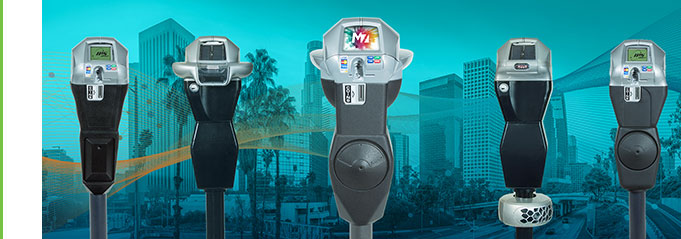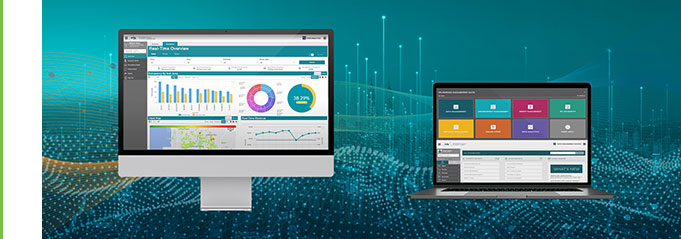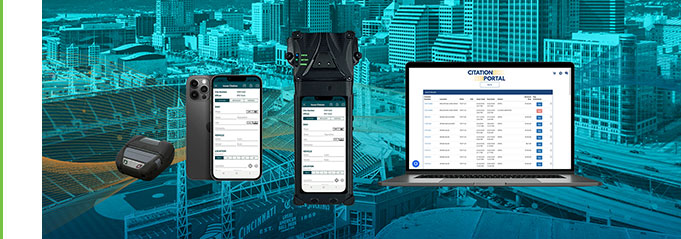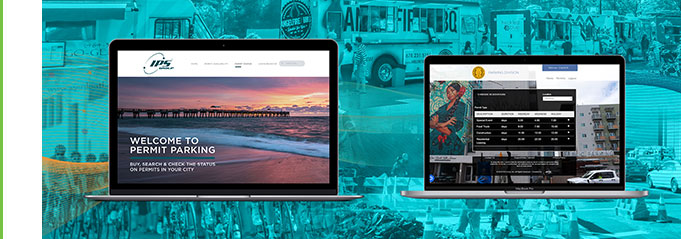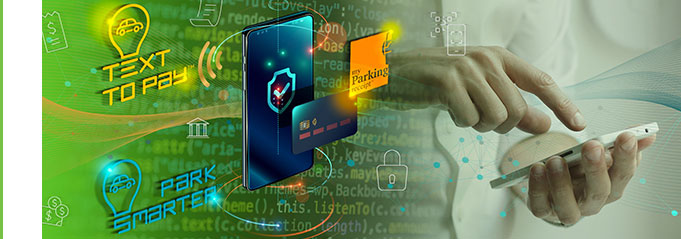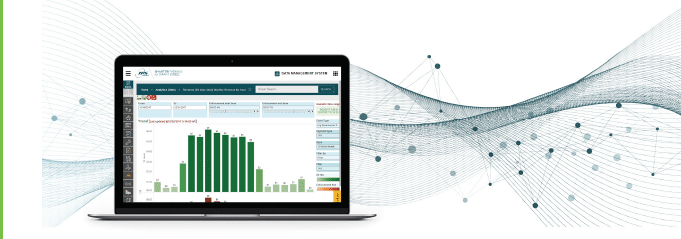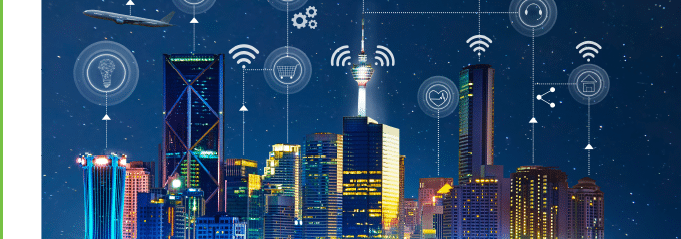
With the advent of wireless technology, city planners have long envisioned Smart Cities where everything is seamlessly integrated and working together to minimize the hassles of city life. This now raises the question, what is a Smart City?
Today, Smart Cities use data and technologies to enhance the lives and operations of its residents and businesses. These technologies are defined as The Internet of Things (IoT).
From self-sustaining energy grids and reducing pollution levels, to leveraging Smart Parking data to improve traffic congestion and make better parking management decisions, IoT lets cities utilize existing wireless technology—found in cell phones, vehicles, appliances, and Smart Meters—to connect and exchange data.
This data exchange creates opportunities for cities to utilize analytics that increase efficiencies, drive the local economy, and improve the day-to-day lives of its residents and visitors.
Below, we’ve created a definitive guide to Smart City development: From renewable energy infrastructure and Smart City traffic management, to Smart Parking sensors, enforcement and permitting.
Smart City Technology Trends in 2020
As more people look to live and work in urban areas, cities are faced with the challenge of combining smart technology and mobility to help residents more efficiently interact with common city services.
One way Smart Cities are doing this is by leveraging real-time data within their Smart Parking networks to increase sustainability, improve enforcement, and decrease emissions. Data from Smart Meters and vehicle detection sensors help increase turnover, eliminating the need for motorists to circle around looking for parking, thereby reducing the city’s collective footprint.
Additionally, advanced analytics facilitate enforcement efforts, optimize workload, maximize resources, and increase revenue, which in turn helps fund infrastructure and accommodate future economic growth.
Smart City Management and Technology
IoT-based Smart City development is not a one-time makeover—it is a step-by-step, evolutionary process. While digital technology is a critical factor to Smart City management success, it is just one of many integral pieces every Smart City project must implement.
From innovation and connectivity to governance, management and operations, each technological capability must integrate seamlessly for a sustainable and successful Smart City.
The disruption caused by Smart City technology means cities must digitally transform existing processes and services. Therefore, Smart City management models must upgrade existing infrastructure and management procedures to support Smart solutions and services and measure performance via advanced data metrics.
To address this challenge, it is vitally important to create a comprehensive roadmap that will streamline long-term planning, such as scope, duration, budget, and expected results.
As tech companies try to outbid the competition by offering lower-priced deliverables, it is important for cities to partner with a proven, innovative supplier that can ensure a Smart City infrastructure that increases revenue, improves efficiency, and contributes to a more sustainable future in the long run.
Cities must also ensure that their Smart City supplier can provide the ability to easily upgrade to new, emerging technology, without any major disruption to their current system.
Finally, ensuring a reliable, connected network is essential for successful Smart City projects. Connectivity technologies today have largely standardized on 4G wireless technology, given the longevity of the data network, as older technologies like 2G and 3G will be phased out. The choice of connectivity depends on a city’s business model and public services that it intends to implement.
Smart City Technology Companies Leading the Way
Smart Cities are expected to create major business opportunities across several industries, with a market value of $1.565 trillion by 2020, and Smart technologies such as parking meters, wireless sensors, high-speed broadband, and cloud-based management systems as key building blocks of the Smart City infrastructure.
Here are a few of the Smart City technology companies leading the way:
Cisco Kinetic
Cisco Kinetic’s location monitoring technology allows users to monitor live feeds of any surveillance camera to determine security conditions. The Smart technology can also alert operators to potential incidents, create incident records, and collect data on location crime type, including social media to predict patterns and potential security threats.
Enevo
Enevo is a technology-driven, progressive waste management company that helps commercial organizations measure, analyze, and manage waste through pre-installed, IoT Smart sensors and a dynamic analytics platform. Named one of the world’s top “cleantech” innovators, the company helps Smart Cities reduce waste-related operational costs and increase recycling efforts.
Streetlight Data
Streetlight Data analyzes mobility behavior using data provided by GPS devices, smartphones, connected vehicles, fitness trackers, and other Smart connected devices, helping create a “proprietary algorithmic processing engine” that extracts information to improve travel conditions.
IPS Group
IPS Group is driving the Smart City initiative with its innovative portfolio of Smart City Parking solutions: Single- and Multi-Space Smart Parking meters, vehicle detection sensors, enforcement and permit management solutions, advanced analytics and data management tools.
The company offers an intuitive, cloud-based Enforcement Management Solution (EMS), which provides real-time access to handle the entire citation lifecycle, including citation issuance, citation processing and delinquent collections. The EMS seamlessly integrates with existing parking technology, such as Single- and Multi-Space Smart Parking meters, vehicle detection sensors, license plate recognition (LPR) technology, and pay-by-phone applications.
The IPS Permit Management Solution is fully-Integrated with the Enforcement Management System, and lets customers manage the entire parking permit lifecycle from initial design through fulfillment via a web-based system.
Learn how IPS can help your city become the Smart City of the future by requesting a virtual product demo or more information.

